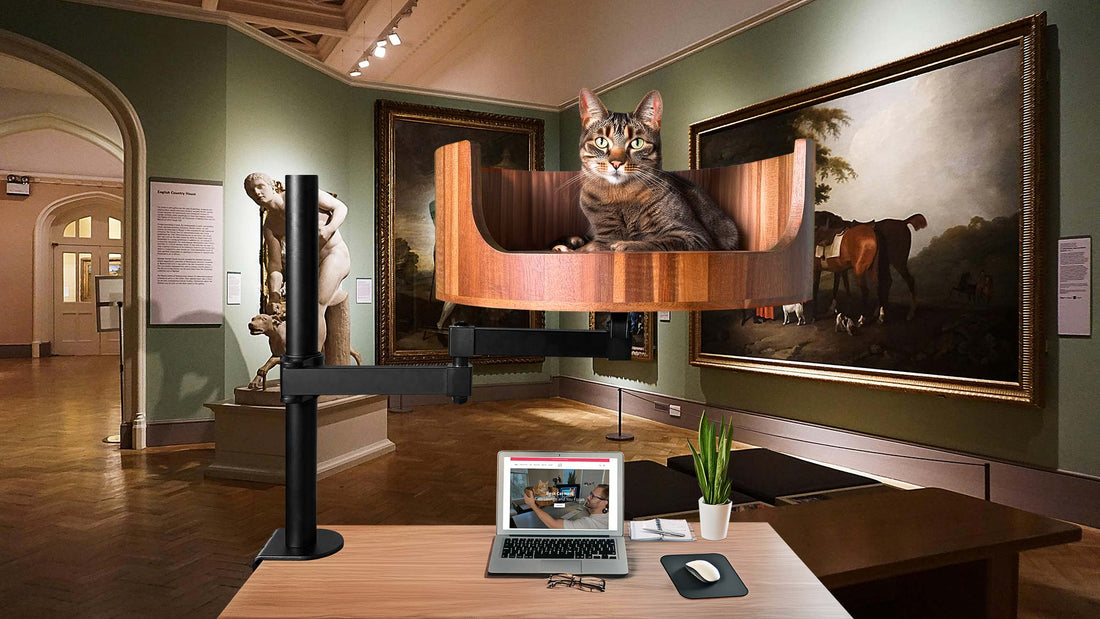
Why Does My 17 Year Old Cat Keep Meowing?
Share
If you have a senior cat who won't stop meowing, it can be both concerning and frustrating. Cats, like humans, can experience cognitive decline as they age, which may manifest in excessive vocalization. However, there could be a variety of reasons why your 17-year-old cat is meowing persistently, ranging from medical issues to changes in their environment or routine.
In this article, we will delve into the potential reasons behind your elderly cat's meowing behavior and provide some tips on how to address it. We will explore common health issues that could be causing your cat distress, such as hyperthyroidism, arthritis, or dental problems. Additionally, we will discuss how changes in your cat's surroundings, like a move to a new home or the addition of a new pet, could be triggering their vocalizations. By gaining a better understanding of why your senior cat is meowing excessively, you can take steps to help them feel more comfortable and content in their golden years.
1. Senior cats may meow more frequently due to potential health issues such as cognitive dysfunction or arthritis.
2. Changes in environment or routine can cause older cats to vocalize more often as a way of expressing discomfort or anxiety.
3. Increased vocalization in senior cats may also be a sign of hearing loss or vision impairment.
4. Providing comfort, routine vet check-ups, and environmental enrichment can help reduce excessive meowing in older felines.
5. Understanding the reasons behind your 17-year-old cat's meowing can lead to appropriate strategies for addressing their needs and improving their quality of life.
## Age-related health issues
As cats age, they are more prone to developing health issues that could lead to excessive meowing. Common age-related health problems in senior cats include dental disease, arthritis, hyperthyroidism, kidney disease, and cognitive dysfunction. These conditions can cause discomfort or pain, leading the cat to vocalize more frequently. It is essential to take your senior cat to the veterinarian for regular check-ups to catch any health issues early on.
## Hearing loss
Another common issue in older cats is hearing loss, which can result in increased meowing. Cats rely heavily on their senses, including their hearing, to communicate and navigate their surroundings. When a cat's hearing starts to decline, they may meow more often as a way to compensate for their loss of hearing. If you suspect your cat may be experiencing hearing loss, consult with your veterinarian for advice on how to best support your cat.
## Attention-seeking behavior
Some senior cats may meow excessively as a way to seek attention from their owners. As cats age, they may become more dependent on their owners for comfort and companionship. If your cat is meowing for attention, try spending more quality time with them, engaging in play sessions, or simply providing extra cuddles. This can help reduce their need to meow excessively for attention.
## Cognitive dysfunction
Senior cats can also develop cognitive dysfunction, which is similar to dementia in humans. Cats with cognitive dysfunction may exhibit various behavioral changes, including increased vocalization. If your cat is meowing more than usual and showing other signs of cognitive dysfunction, such as confusion or disorientation, consult with your veterinarian for possible treatment options or management strategies.
Desk Cat Nest FAQ
Why does my 17 year old cat keep meowing?
There could be a few reasons why your 17 year old cat is meowing more frequently. It could be due to old age and cognitive decline, medical issues such as thyroid problems or arthritis, or simply seeking attention or comfort. Providing a cozy and comfortable space like the Desk Cat Nest could help address these concerns.
Will the Desk Cat Nest help reduce my cat's meowing?
While the Desk Cat Nest cannot guarantee to completely eliminate your cat's meowing, providing a cozy and safe space for your cat to rest and relax can help reduce stress and anxiety, which may be causing excessive meowing. It also gives your cat a designated space to call its own, which can help provide comfort and security.
Is the Desk Cat Nest suitable for older cats?
Yes, the Desk Cat Nest is designed to be suitable for cats of all ages, including older cats. The soft and plush material provides a comfortable and warm space for your aging feline friend to rest and relax. The raised edges also provide a sense of security and protection for older cats who may be more vulnerable.
How can I encourage my cat to use the Desk Cat Nest?
It may take some time for your cat to get used to the Desk Cat Nest, especially if they have never had a designated bed or space before. You can encourage your cat to use the nest by placing their favorite toys or blankets inside, using treats to reward them when they use the nest, and gently guiding them towards the nest when they are sleepy or looking for a cozy spot to rest.
In conclusion, the Desk Cat Bed is a valuable choice for addressing why your 17 year old cat keeps meowing. By providing a comfortable and secure resting place right next to you while you work, this bed helps reduce your cat's anxiety and attention-seeking behavior. With its soft and cozy materials, the Desk Cat Bed ensures your cat feels safe and content, leading to a quieter and happier feline companion. Invest in a Desk Cat Bed today to create a peaceful environment for both you and your elderly cat.



















































